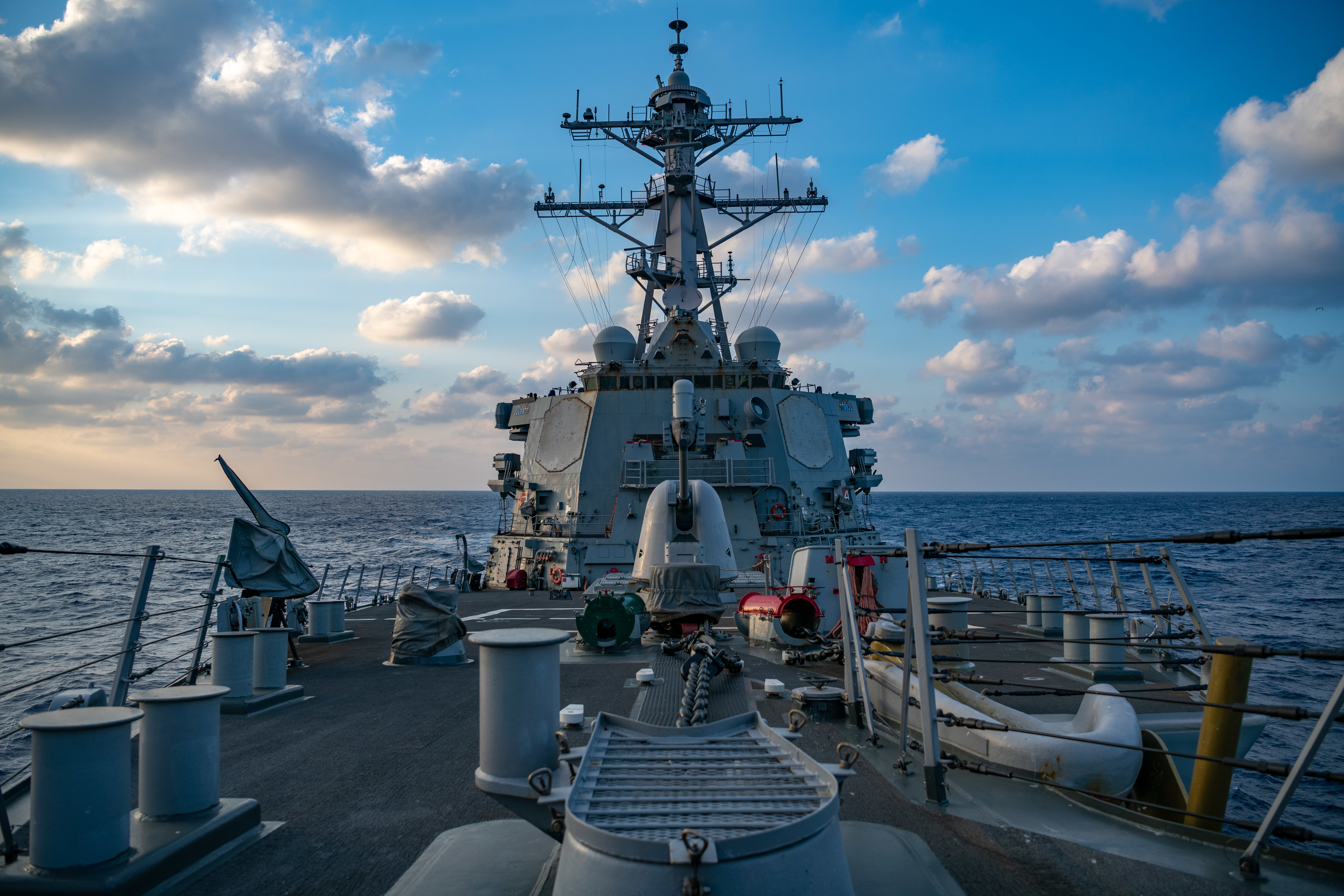China’s Continued Disdain for the International Legal Order
Once again, China is showing its disdain for the rules-based international legal order that regulates activities at sea.

Published by The Lawfare Institute
in Cooperation With

Once again, China is showing its disdain for the rules-based international legal order that regulates activities at sea. On Aug. 4, China’s Hainan Maritime Safety Administration issued a notice to mariners and airmen indicating that the People’s Liberation Army (PLA) would be conducting military exercises in waters of the South China Sea from Aug. 6 to 10 in an area bounded by the following coordinates:
MILITARY TRAINING IN AREA BOUNDED BY THE LINES JOINING:
A: 18-42.60N/110-51.92E; B: 19-45.38N/112-19.00E; C: 18-43.17N/113-30.78E; D: 17-50.92N/114-25.67E; E: 17-25.05N/114-42.07E; F: 16-10.85N/113-40.33E; G: 15-48.53N/112-37.65E; H: 18-10.78N/110-43.90E
FROM 051600 UTC AUG 21 TO 101600UTC AUG 21.
The notice further provides that entry is “prohibited” during the exercise period. The exercise commenced on Aug. 5 and will purportedly include live-fire “aircraft carrier killer” anti-ship missile exercises.
The area in question is a large rectangular-like box that extends east-southeast of Hainan Island, encompassing most of the waters surrounding the Paracel Islands, as well as large swaths of water beyond the 12-nautical-mile (nm) limit of any land feature where high seas freedoms of navigation and overflight are guaranteed to the international community by the United Nations Convention on the Law of the Sea (UNCLOS) (Articles 58, 86-87, 89-90). Nonetheless, as indicated above, transit through and over the exercise area is prohibited for all ships and aircraft.
Article 25 of UNCLOS permits coastal states to temporarily suspend innocent passage of foreign ships in specified areas of their territorial sea if the suspension is essential for the protection of their security, including weapons exercises. A six-day suspension of innocent passage in the 12-nm territorial sea to conduct a large-scale naval exercise would be considered “temporary” and therefore legitimate. Article 9 of the Chicago Convention provides similar authority for states to restrict or prohibit foreign aircraft from flying over certain areas of its territorial sea for reasons of military necessity or public safety. However, these prohibited areas must be reasonable in extent and location so as not to interfere unnecessarily with air navigation.
Nevertheless, to the extent that the restricted navigation area extends beyond the territorial sea or national airspace, China may only establish a temporary warning area to advise ships and aircraft that it is conducting a military exercise that may pose a hazard to navigation or overflight. Ships and aircraft retain a right to transit through the area with the understanding that there is an increased risk in doing so.
China may not legally establish a prohibited/exclusion zone beyond the 12-nm limit. Beyond the territorial sea, states may not subject any part of the high seas, including the exclusive economic zone (EEZ), to their sovereignty (UNCLOS Articles 58, 89). Seaward of the territorial sea, ships and aircraft of all nations enjoy high seas freedoms of navigation and overflight and other internationally lawful uses of the seas related to these freedoms (UNCLOS Articles 58, 86-87, 90). To the extent that the PLA exercise area temporarily closes areas of the ocean beyond China’s territorial sea, it is clearly inconsistent with international law.
A portion of the exercise area is equally problematic because it overlaps much of the Paracel Islands, which are claimed by China, Taiwan and Vietnam. China has committed to (a) respect freedoms of navigation and overflight in and over the South China Sea as provided for in international law, including UNCLOS; (b) resolve its territorial and jurisdictional disputes by peaceful means, without resorting to the threat or use of force; and (c) exercise self-restraint in conducting activities that would complicate or escalate disputes and affect peace and stability in the region. Declaring a prohibited zone that encompasses the Paracel Islands and its surrounding waters, as well as areas of the EEZ and high seas, is inconsistent with all of these commitments. The naval exercise is yet another underhanded attempt by China to reinforce its claims in the South China Sea through force and intimidation.
The international community has given China a “free pass” for its malign behavior for too long. But China will not stop its disregard for the rules-based international order until states bordering the South China Sea, together with other Pacific nations such as Japan, Korea, Australia and the United States, and seafaring nations such as India, the United Kingdom, France and Germany, take a stand and push back against its continued aggressive actions in the region.
All interested states should immediately file a diplomatic protest condemning China’s disregard for internationally recognized navigational rights and freedoms in the South China Sea. The United States and other regional naval powers should also operate ships and aircraft in the declared zone to demonstrate non-acquiescence to China’s unlawful attempt to assert sovereignty over areas beyond its territorial sea. Continued inaction by the international community to challenge China’s excessive claims will allow those claims to solidify over time and provide China with a potential legal basis to counter future challenges.





